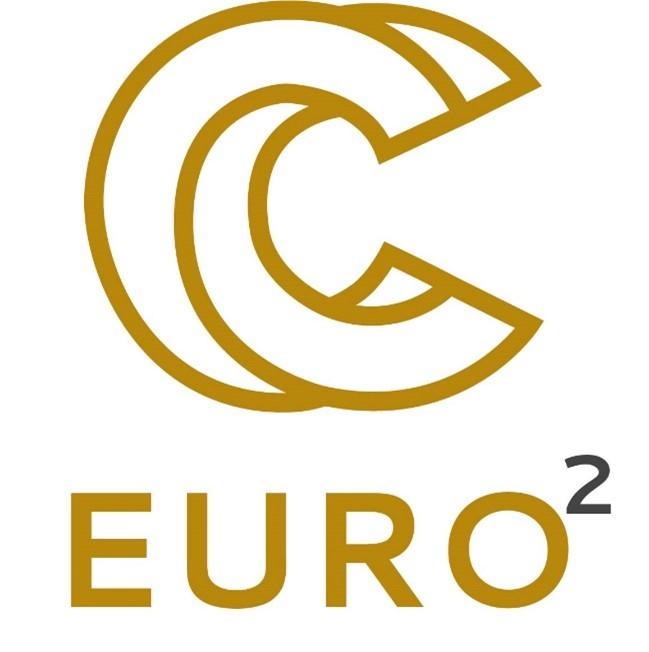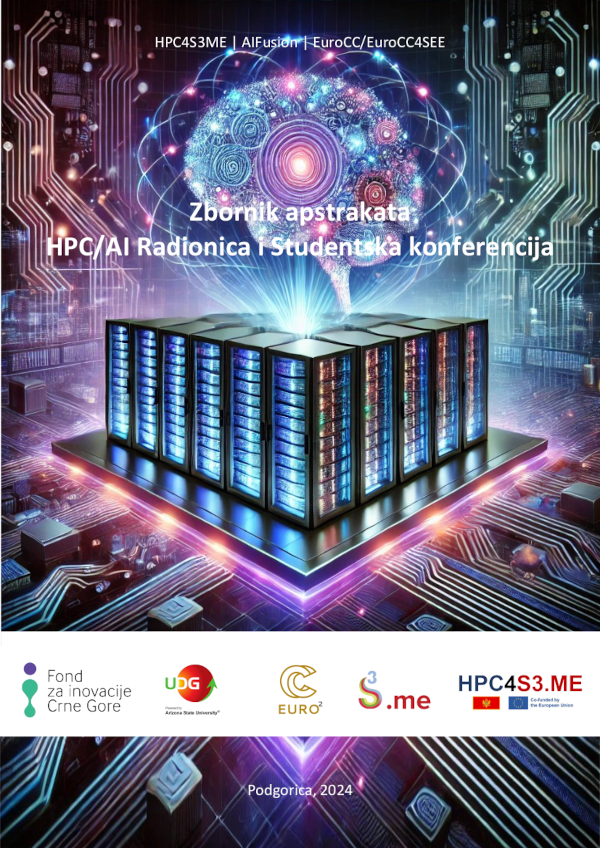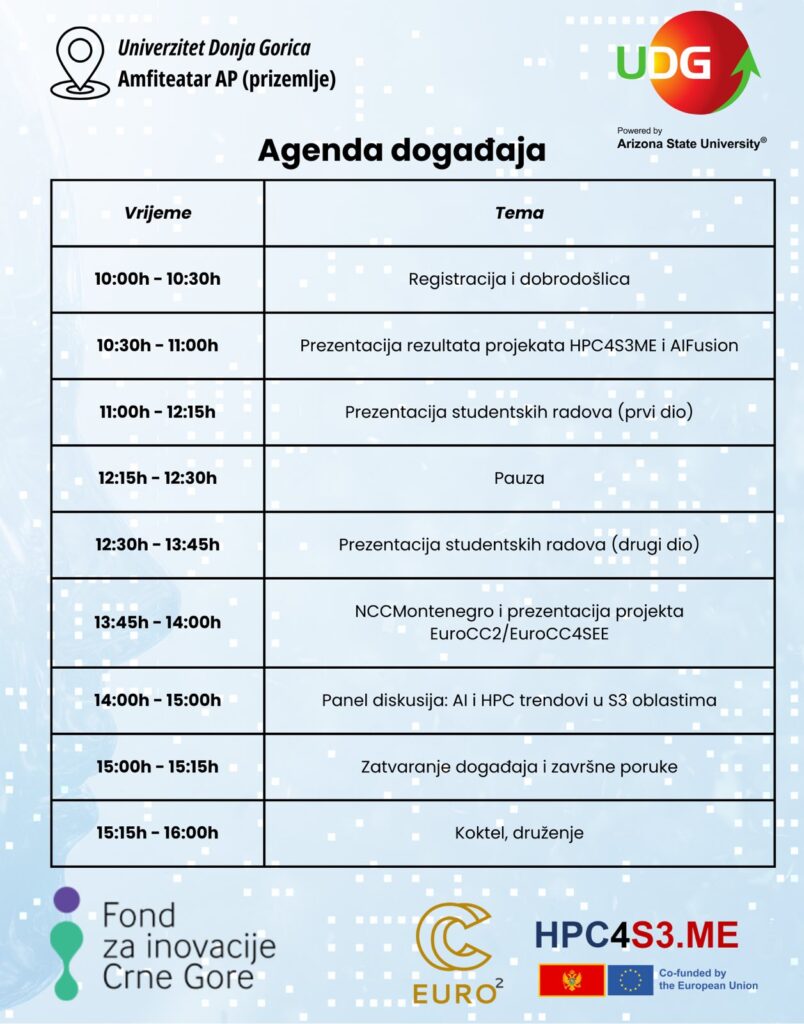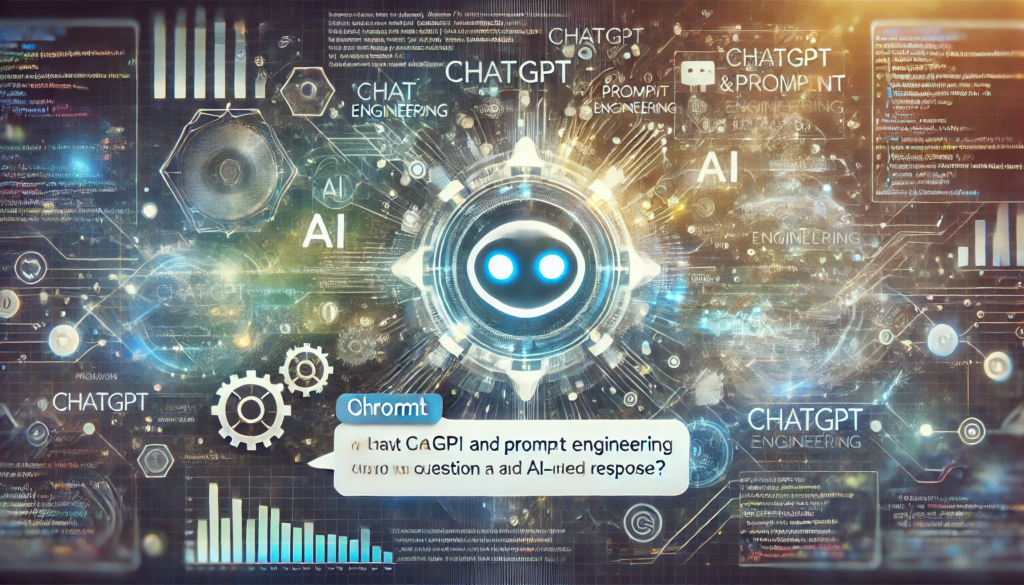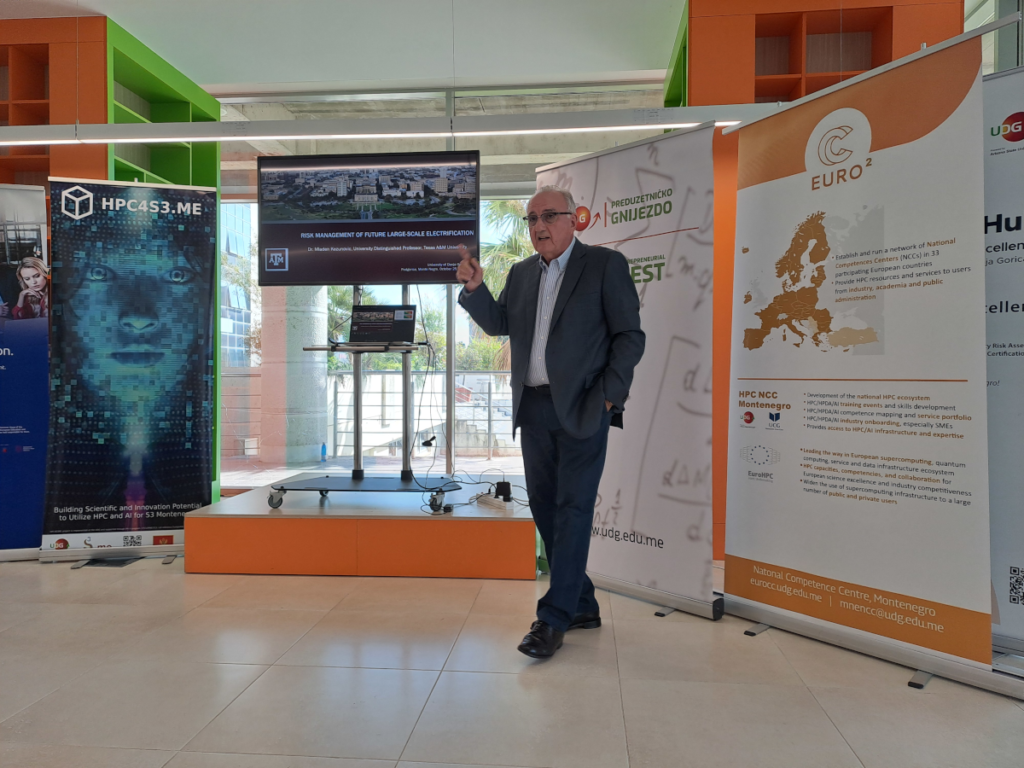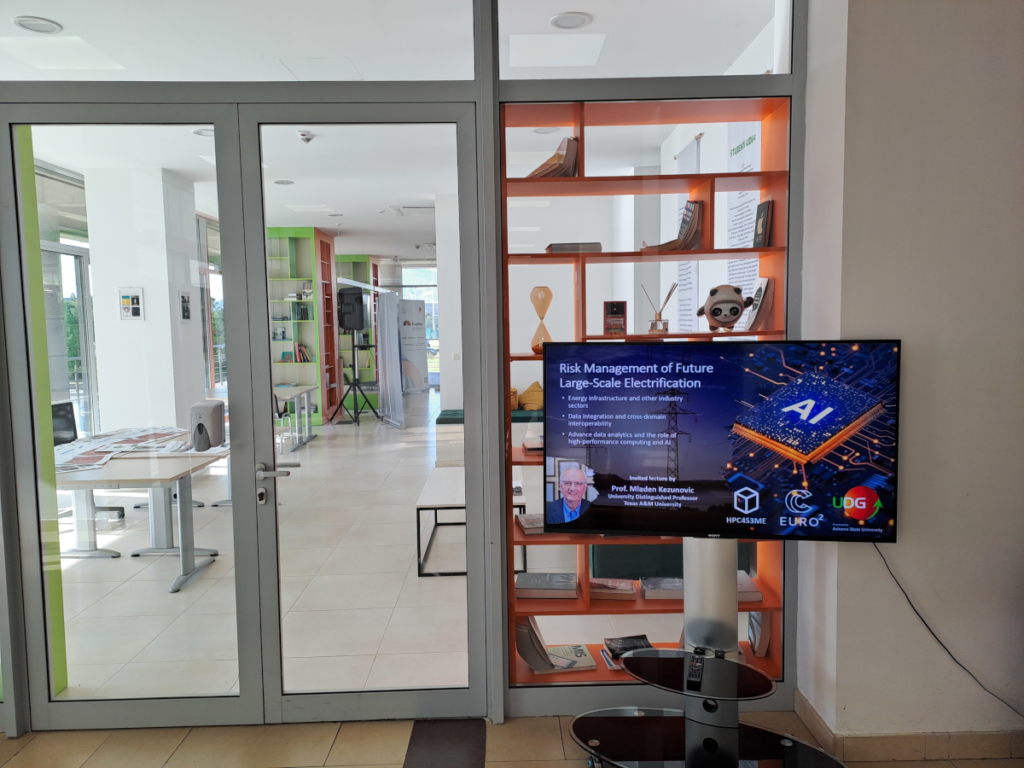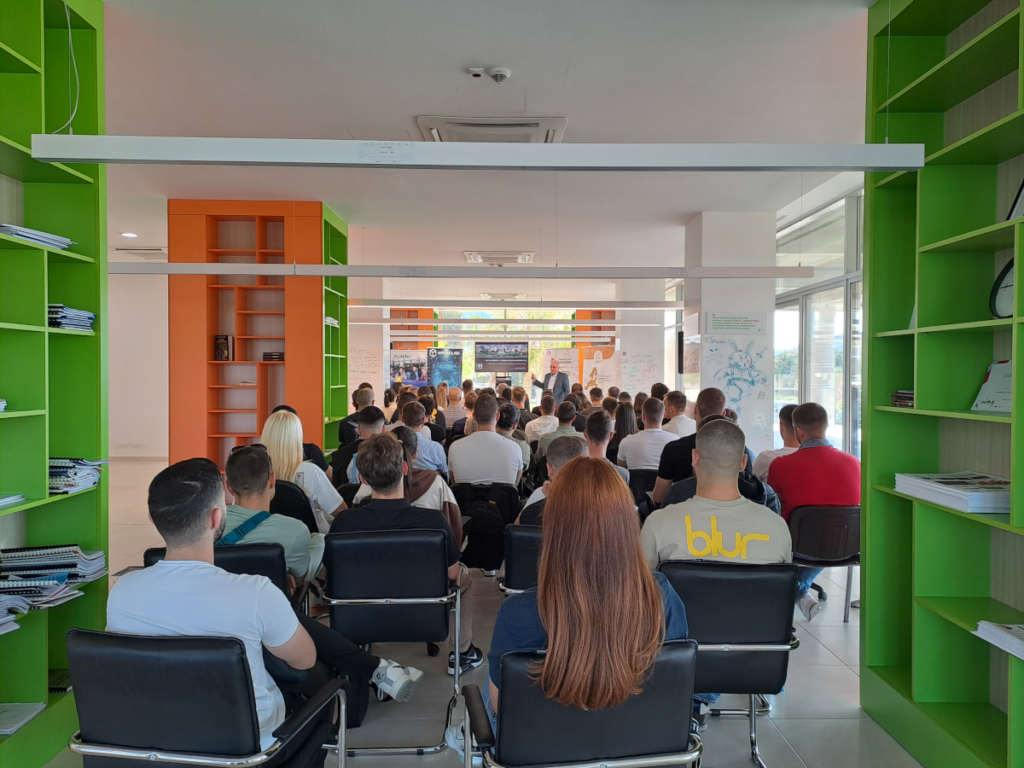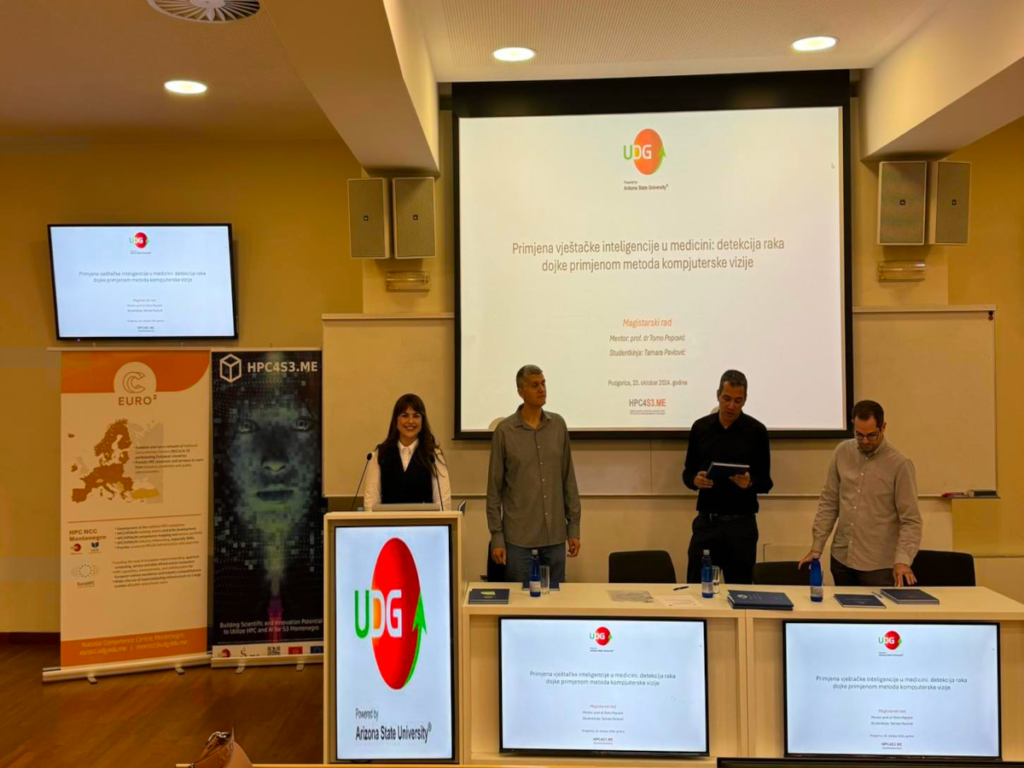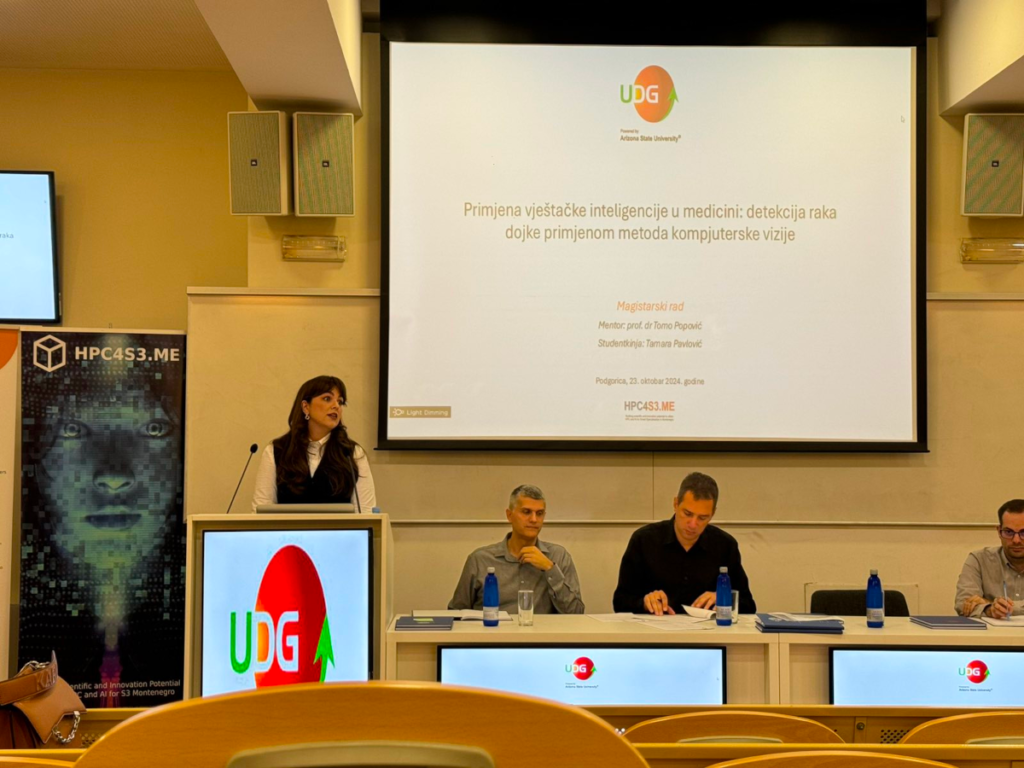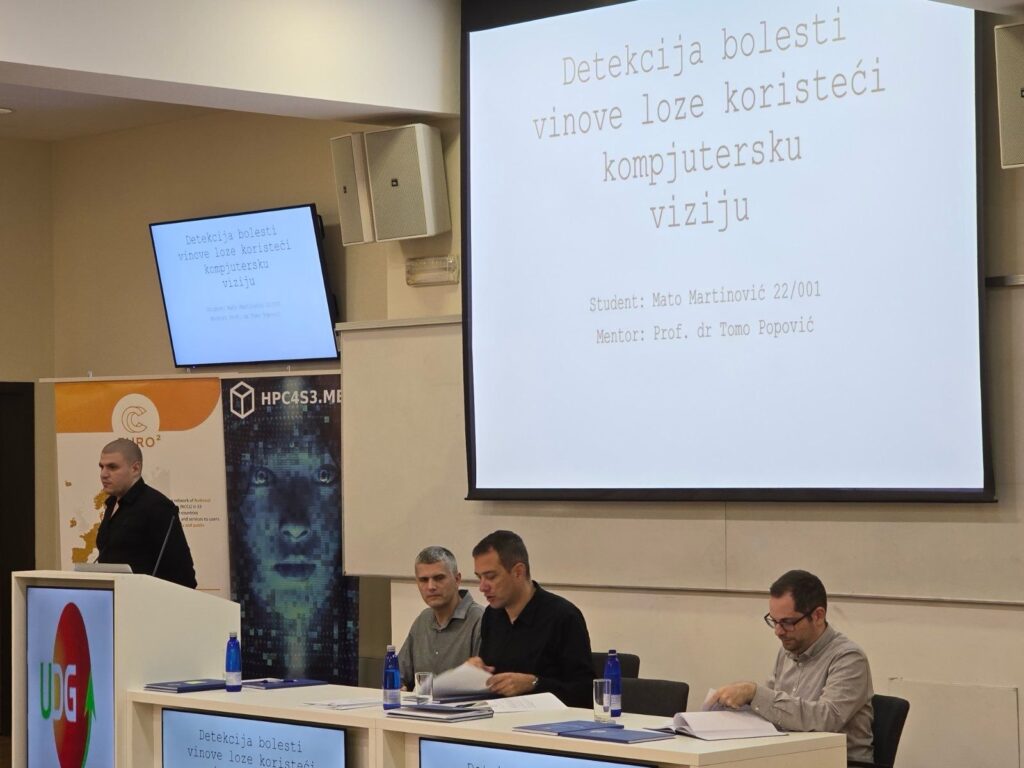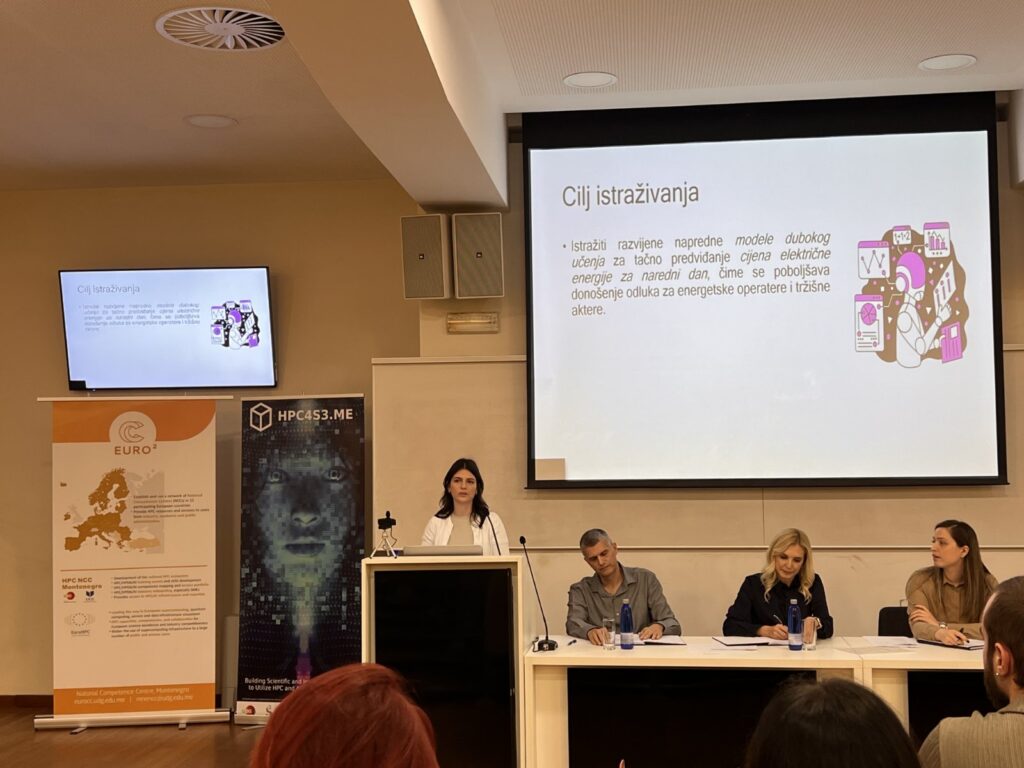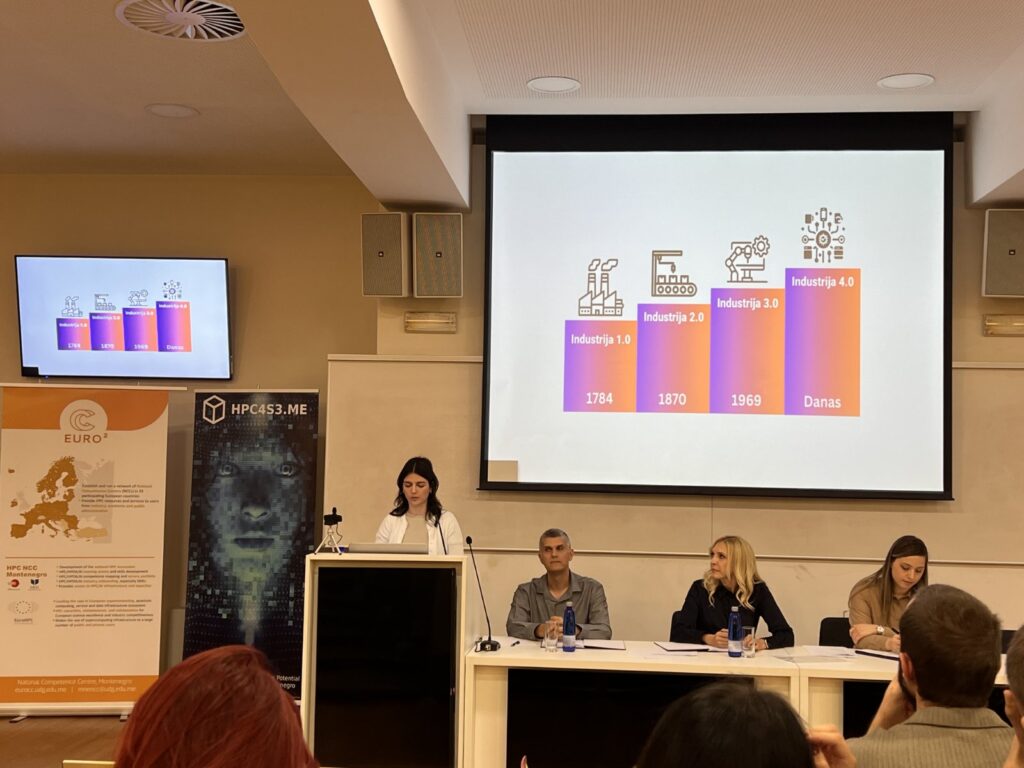The University of Donja Gorica hosted the highly anticipated HPC/AI Workshop and Student Conference on Saturday, December 21st. This event served as a key platform to highlight the outcomes of the HPC4S3ME IPA project and the AIFusion training program supported by the Innovation Fund of Montenegro. Both projects were developed within the framework of EuroCC2/EuroCC4SEE, with support from the NCC Montenegro team. The events showcased significant advancements in high-performance computing (HPC) and artificial intelligence (AI) in Montenegro.
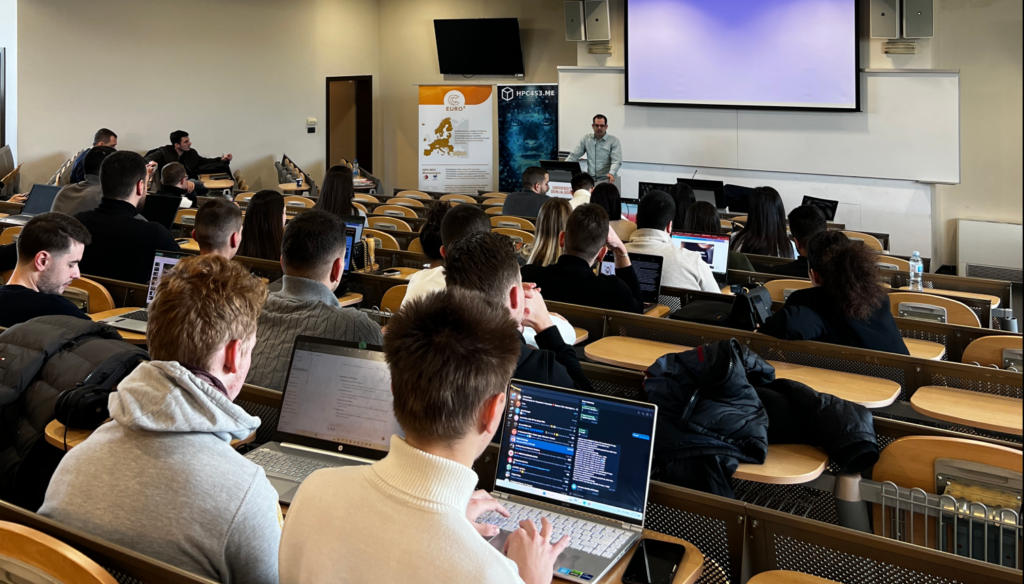
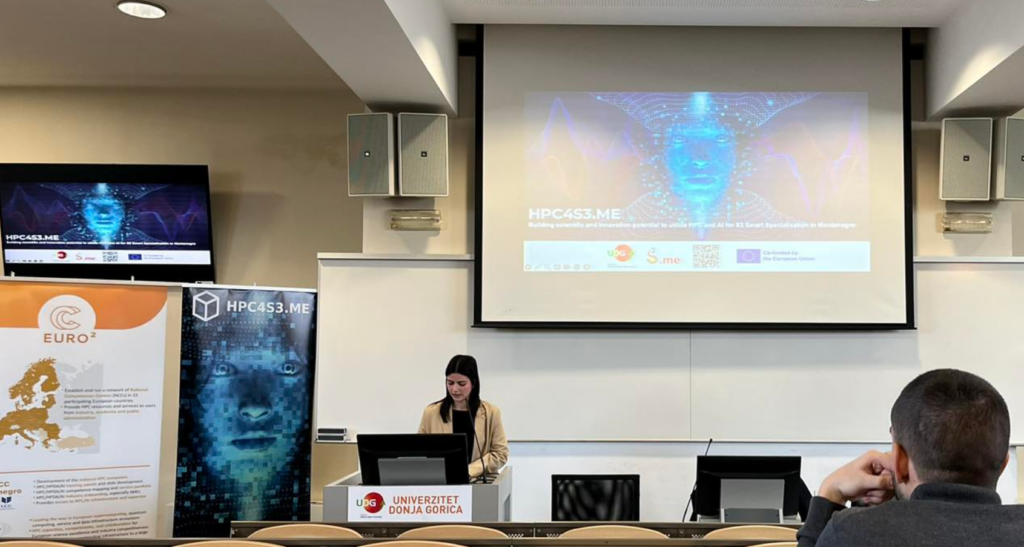
The workshop commenced with presentations on the results and achievements of the HPC4S3ME and AIFusion projects. Participants were also introduced to the activities and contributions of NCC Montenegro and the broader EuroCC2/EuroCC4SEE initiatives. These sessions underscored the critical role of collaboration and innovation in advancing HPC and AI capabilities.
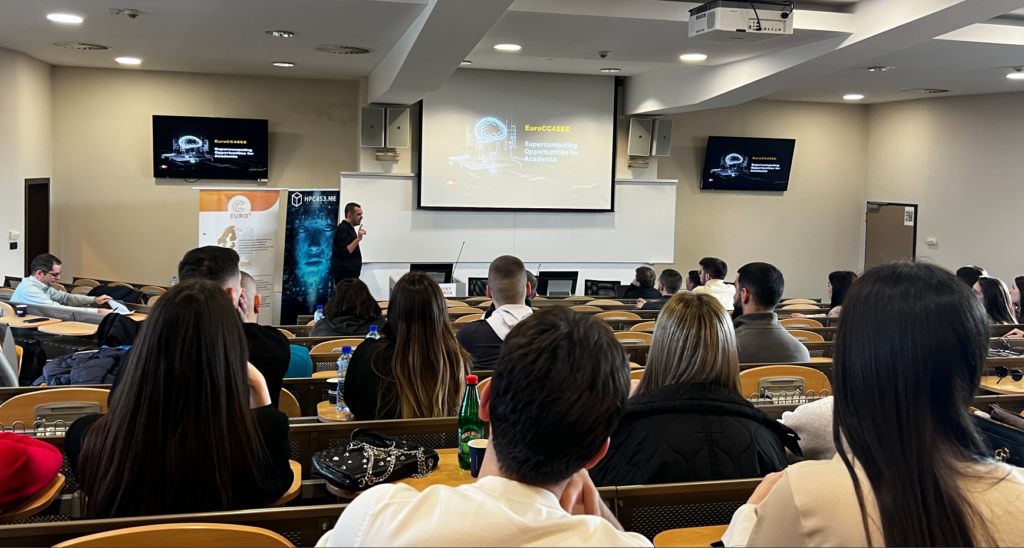
A highlight of the event was the student conference, which featured 19 project presentations by student teams, primarily from MSc and BSc programs. These projects demonstrated the creativity, technical acumen, and forward-thinking approaches of the next generation of researchers and innovators. The diversity of ideas presented reflected the growing interest and expertise in leveraging HPC and AI for real-world applications. The project discussed HPC and AI applications in digital transformation of education, medicine, fashion, mathematcis, and tourism.
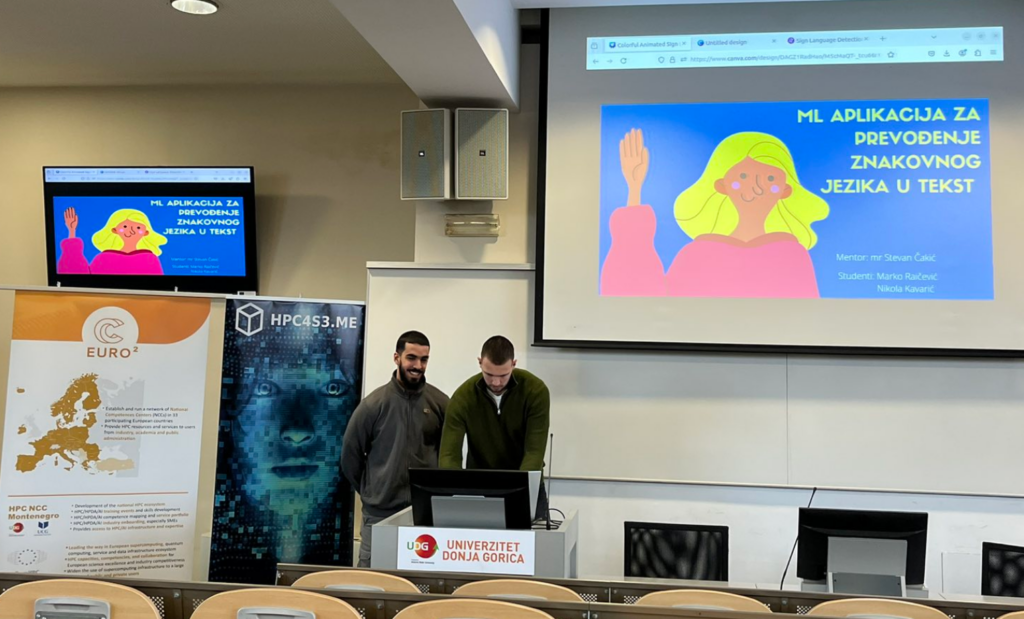
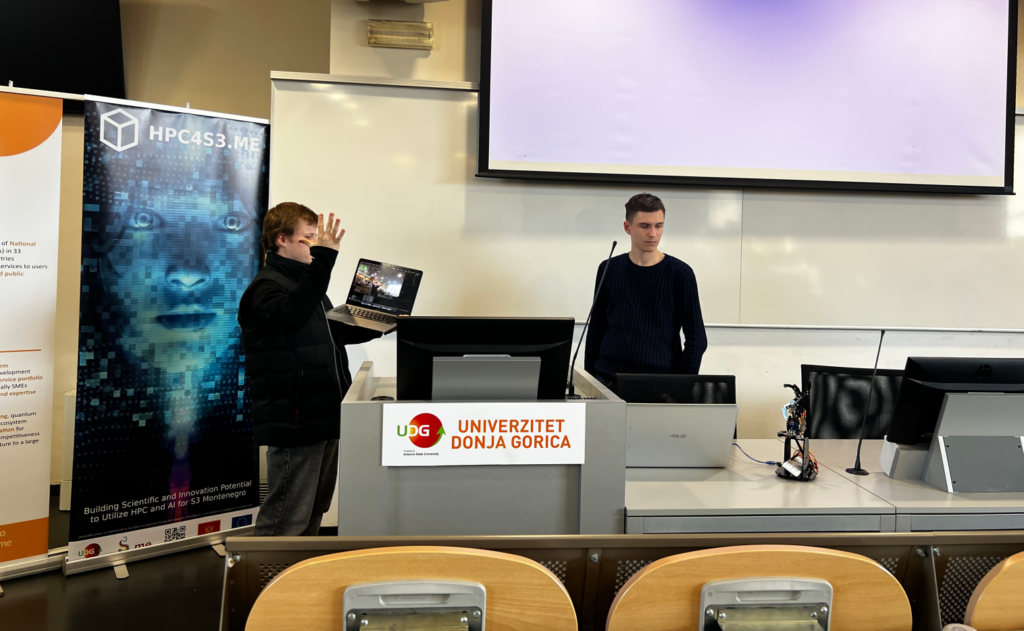
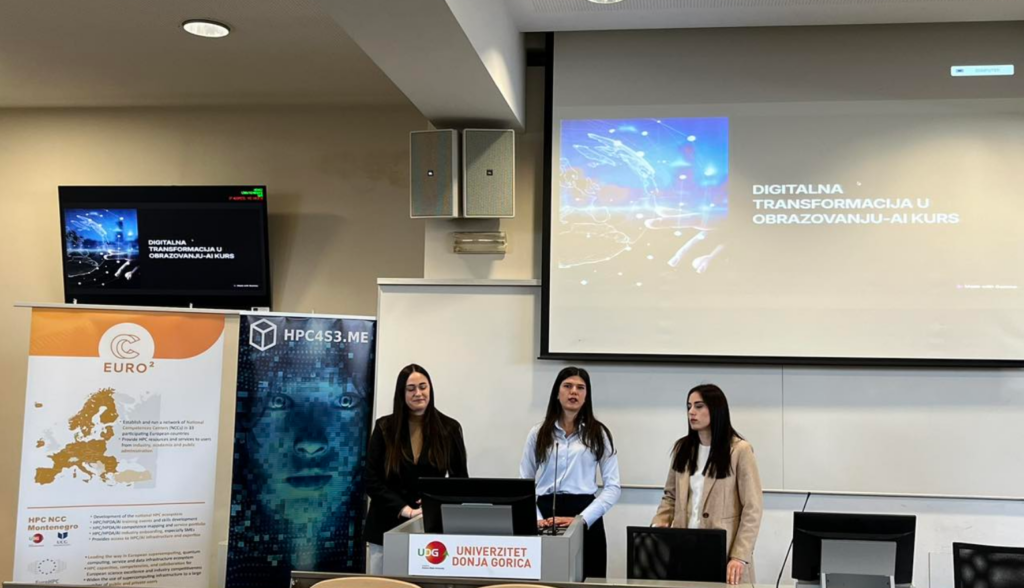
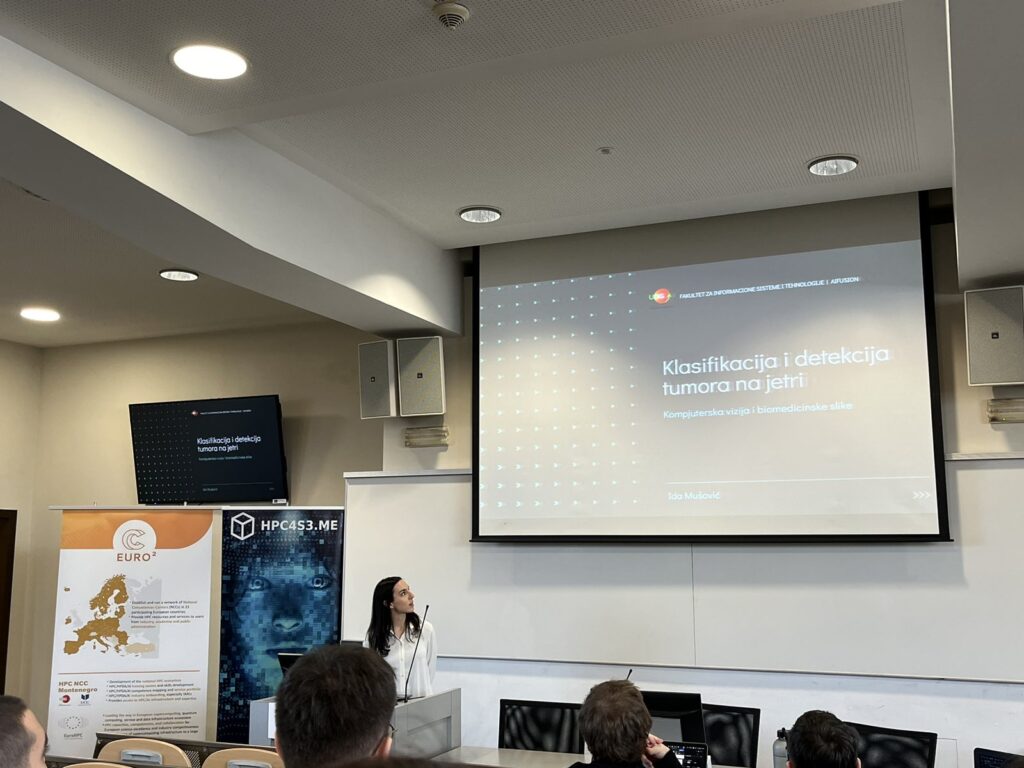
The day concluded with a dynamic panel discussion focusing on the potential of HPC and AI, emphasizing the importance of training, skills development, and success stories from academia and industry. Experts and participants engaged in vibrant discussions, exchanging insights and exploring the future possibilities of these transformative technologies.
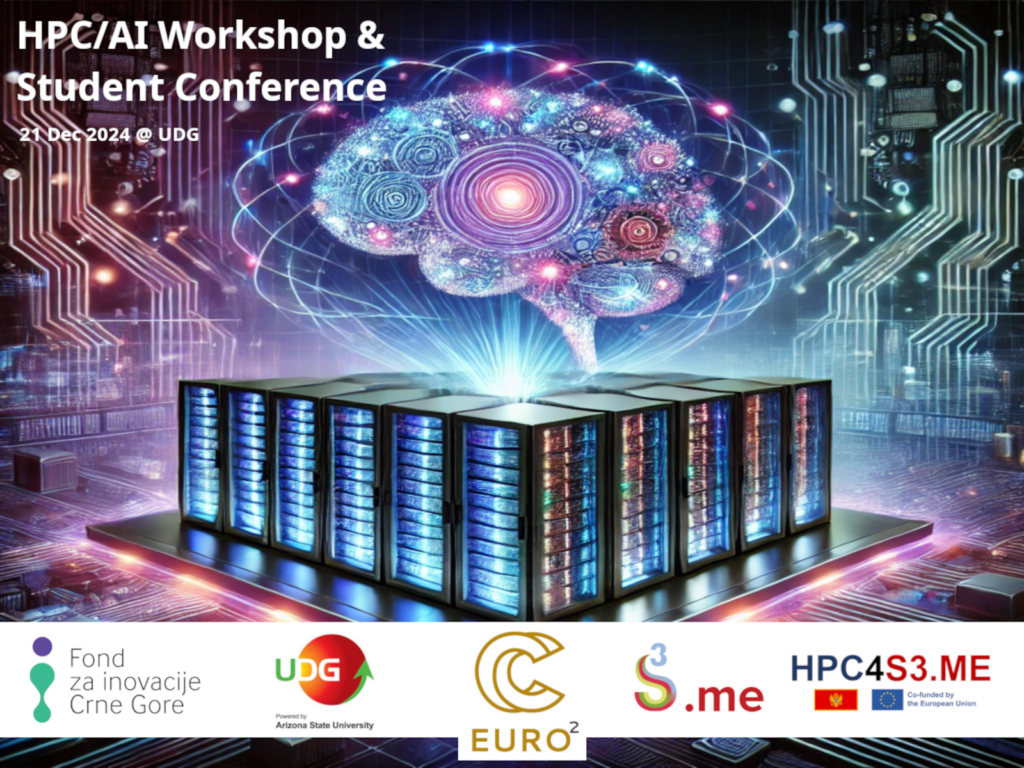
With over 50 attendees, the event fostered a collaborative and engaging atmosphere, encouraging knowledge sharing and networking. The conference provided participants with an inspiring experience, leaving them motivated to explore further advancements in HPC and AI.
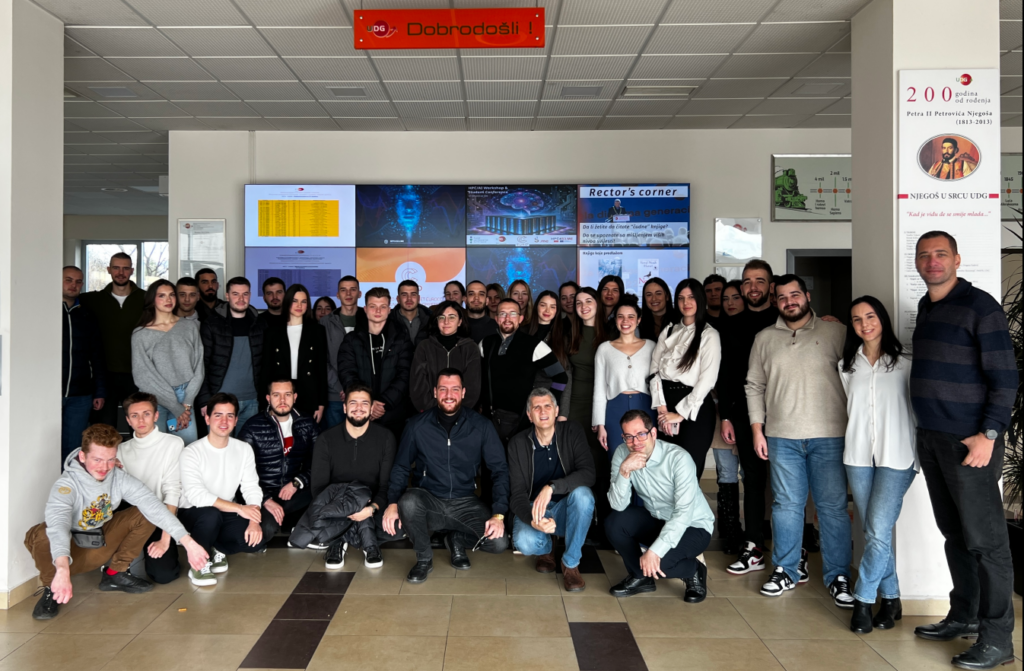
The event concluded on a high note with a cocktail reception, offering attendees the opportunity to network in an informal setting. This gathering reaffirmed the University of Donja Gorica’s commitment to fostering innovation and excellence in HPC and AI, further establishing its role as a regional leader in these critical domains.
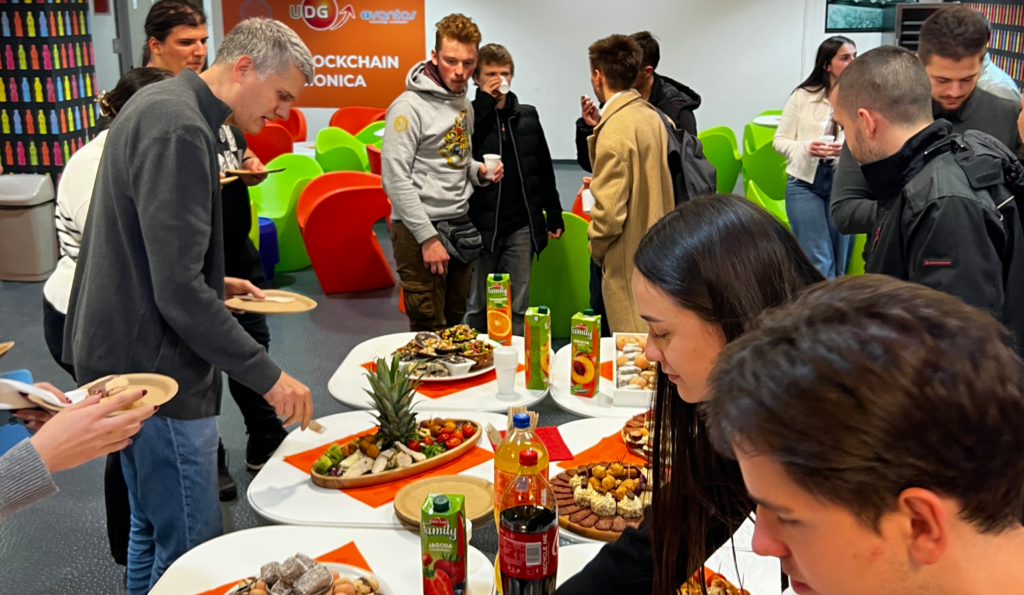
The Book of abastracts can be accessed by clicking on the image below (link).


